Top 21 Fruits For Hair Growth
The secret to strong, healthy hair could be as simple as eating your favorite fruits.
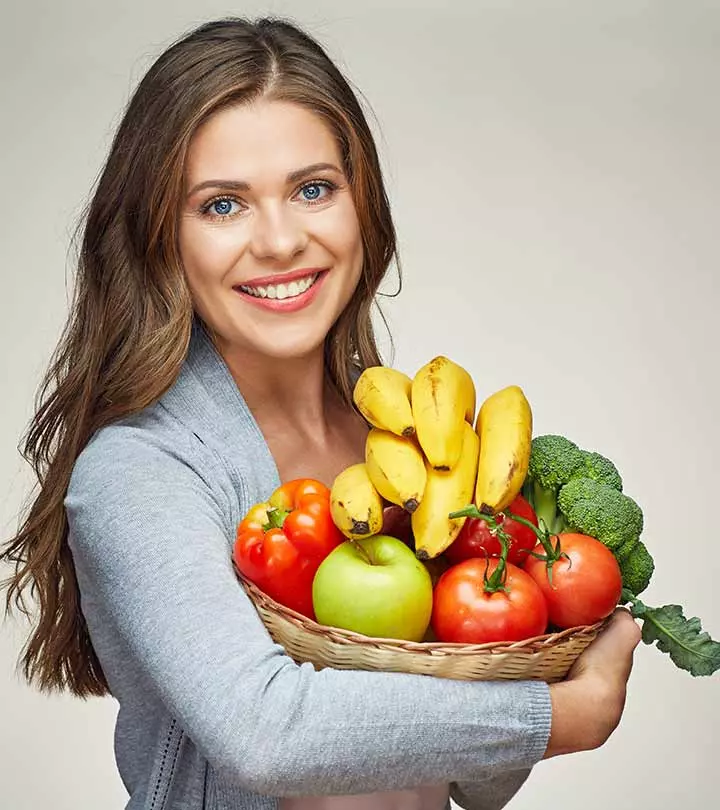
Image: Shutterstock
Getting proper nutrition is critical for hair growth. Apart from veggies, consuming certain fruits for hair growth will be an added advantage. Yes, several fruits contain the necessary nutrients to boost your hair health. They may not directly affect hair growth but contribute to strengthening the follicles and roots, maintaining scalp health, preventing hair damage, and maintaining its elasticity. These factors are also crucial to maintaining healthy hair and reducing hair fall issues. You must be wondering which fruits are good for hair growth? Here, we have compiled a list of the top 21 fruits that encourage hair development and health. Incorporate these fruits into your diet, and you will see results.
Read on.
In This Article
Best Fruits For Hair Growth
Follow a specific diet for hair growth, containing the below mentioned fruits, to achieve lustrous, thick, and long tresses naturally.
1. Oranges
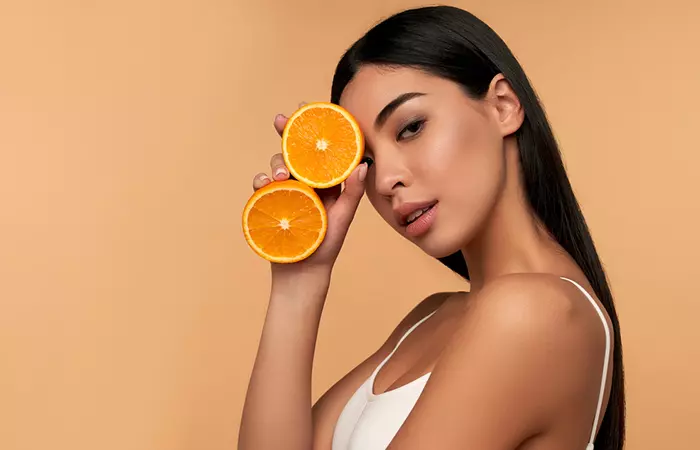
Vitamin-rich fruits like oranges have antioxidant, antifungal, and antibacterial properties (1). These properties may help reduce free radical damagei Unstable molecules of oxygen that cause harm to other healthy cells and lead to cell damage. and hair fall and prevent dandruff and other scalp infections. Oranges are excellent sources of vitamin C. The deficiency of vitamin C is known to cause corkscrew hair and hair loss (2). Instead of opting for supplements that may have more than the required amount of vitamin C, opt for an orange.
2. Apples
Apples contain procyanidin B-2, which promotes hair growth in hair epithelial cells (3). It also contains antioxidants, which reduce hair damage from free radicals. Apples can also increase hair density and protein content in the hair (4).
3. Strawberries
Strawberries have antioxidant properties and also contain vitamin C, which helps enhance hair health (5). Anecdotal evidence suggests the silica in strawberries may slow down hair loss and baldness and boost hair growth, which may improve hair thickness as well. However, there is no scientific evidence to back this claim. It can also help treat dandruff and make the hair soft and shiny.
4. Banana
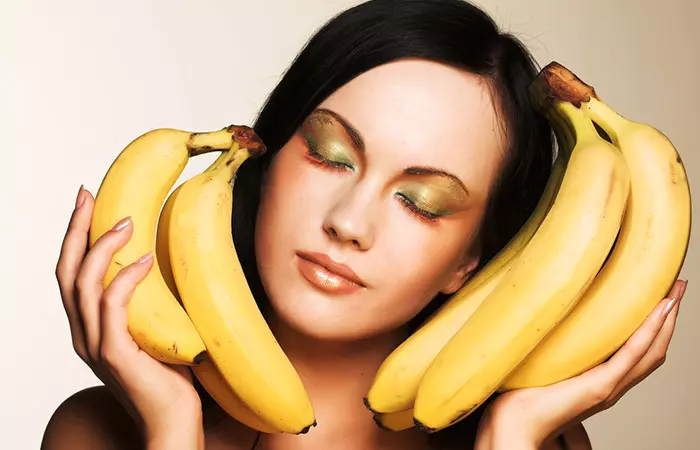
Bananas can stimulate hair growth (6). They can also improve scalp quality by preventing dandruff and unclogging pores. Bananas make your hair more manageable and impart shine. They contain potassium, carbohydrates, vitamins, and natural oils that protect your hair’s natural elasticity and prevent split ends and breakage. They can also help control dandruff, play a role in hair strengthening, and enhance the shine of hair (7).
Doro Cubillo, a beauty and lifestyle vlogger, tried bananas on her hair for 7 days and shared her experience in her YouTube video. She states, “The more ripe the banana, the more conditioned and more soft your hair. I really like how the texture of my hair feels, and it has not been frizzy, dry, or rough. Also, it makes your hair stronger and thicker (i).”
5. Avocado
Avocados contain protein, vitamins A, B, B1, B2, E and C, beta-carotene, linoleic acid, lecithin, calcium, iron, potassium, phosphorus, and niacin (8). These nutrients help condition the hair and also promote hair regrowth.
6. Pineapples
Pineapples contain calcium and vitamin C (9). Both these nutrients are important for keeping the hair healthy. Calcium keeps your hair healthy, and its deficiency can lead to hair loss (10). Vitamin C helps reduce hair loss and also boosts collagen. Vitamin C is an antioxidant that protects the hair from photodamagei Changes in the skin due to prolonged exposure to the sun, such as wrinkles, fine lines, coarseness, freckles, or pigmentation. and free radical damage.
7. Grapes
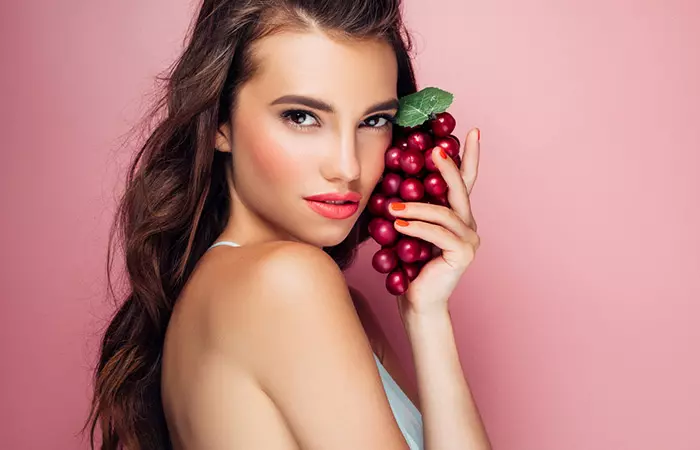
The procyanidinsi A class of plant chemicals that works as an antioxidant and provides protection against heart diseases. found in grapes have antioxidant, anti-inflammatory, and antifungal properties (11). These antioxidant properties protect the hair follicles from damage by free radicals. A study showed that procyanidins could promote hair regeneration and induce hair growth (12).
8. Apricots
Apricots contain two essential fatty acids, linoleic and linolenic acidsi An essential fatty acid that is used in cosmetic and personal care products as a moisturizing agent. . They help promote hair growth (13). Apricot oil has been traditionally used in India as a hair oil due to its softening and moisturizing effects (14).
9. Peaches
A plant mixture containing peach extracts was shown to promote hair growth in human dermal papilla cells by prolonging the anagen phasei A phase in the hair growth cycle during which it grows 1 cm every 28 days. This phase is followed by the catagen phase. (15). Peaches also have antioxidant, anti-inflammatory, and antimicrobial properties (16). These properties may help promote scalp and hair health.
10. Plum
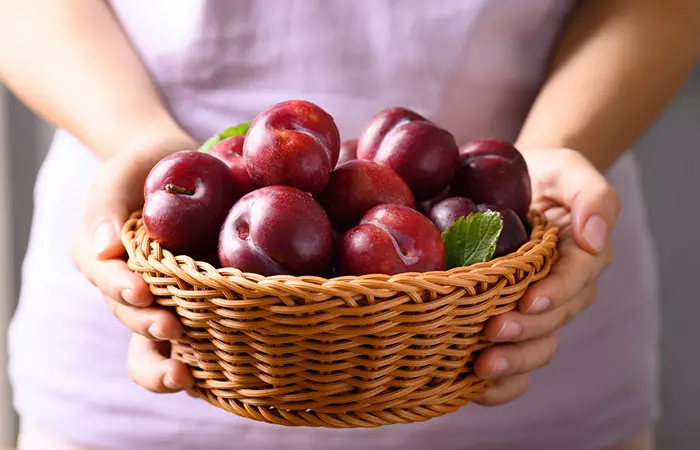
Plums have a high phenolic content, which makes them good natural antioxidants (17). Antioxidants scavenge the harmful free radicals that cause hair fall and hair damage. It also has anti-inflammatory properties, which can help soothe the scalp and prevent scalp infections.
11. Guava
A herbal shampoo containing guava leaf extracts was found to promote hair growth and resolve hair-related issues (18). Guava also exhibits antifungal properties (19). This can help prevent dandruff and other scalp infections.
12. Gooseberries
The Indian gooseberry, or amla, promotes hair growth by prolonging the anagen phase of the hair growth cycle (20). It is also known to prevent premature graying of hair and strengthen the hair follicles (21). It also has the highest natural concentration of vitamin C, whose deficiency is known to cause hair fall.
 Trivia
Trivia13. Lemon
A study showed that lemon could help reduce hair loss and balding. It also helps reduce dandruff, lice, and scalp acne (22). Lemon also contains vitamin C, which is known to prevent hair loss.
14. Cherry
Cherries have antioxidant and antifungal properties (23). These may protect your hair and scalp from oxidative stress and promote hair health.
15. Coconuts
The coconut oil extracted from coconuts is a well-known hair care ingredient. Studies show that coconut oil can penetrate the hair shaft and nourish it from within with its fatty acids (24). It also prevents hair damage. Coconut contains lauric acid that promotes hair growth.
16. Papaya
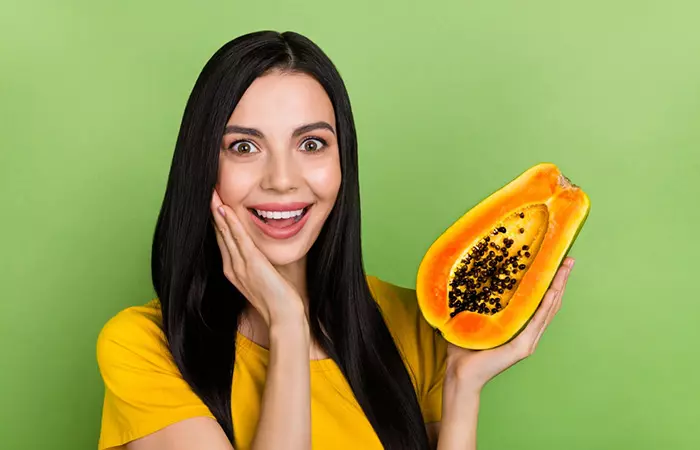
Papaya is a rich source of antioxidants and phytonutrients and contains vitamins A, C, and E (25). It helps condition hair. It also exhibits potential hair growth stimulating activity (26). Papaya also has antifungal properties that help treat dandruff (27).Papaya contains fruit enzymes that strengthen and improve hair texture.
17. Grapefruit
Grapefruit, like orange, contains citrus oils that are enriched with antioxidant properties. These antioxidants help reduce hair fall by combating free radicals. Grapefruit extracts were found to exhibit anti-lice activity in children (28). It can also soothe your scalp and make your hair soft and shiny.
18. Dragon Fruit
Dragon fruit juice can be used to color bleach-treated hair (29). Dragon fruit is rich in vitamin C, which prevents photoagingi Skin damage caused by prolonged exposure to UV rays in sunlight that can lead to wrinkles, pigmentation, and fine lines. (30). It contains essential fatty acids that not only nourish your skin and hair but also prevent dandruff.
 Fun Fact
Fun Fact19. Mangoes
Mango is rich in vitamin C, which promotes healthy hair. It is also a good source of vitamin A, which stimulates hair growth and promotes the production of sebum that keeps your scalp moisturized and healthy (31), (32). Anecdotal evidence suggests that mangoes impart shine to hair and make it soft. However, there is no scientific evidence to prove these effects.
20. Blueberries
Blueberries contain flavonoids like anthocyanins and proanthocyanidins that can help reduce oxidative stress and prevent inflammation (33). Combating oxidative stress may help prevent hair loss. Research also suggests that proanthocyanidins may have the potential to promote hair growth. In a study on mouse hair follicle cells, these compounds were found to increase hair density (34).
21. Lychee
Lychee is particularly rich in vitamin C (35). This nutrient is a potent antioxidant that helps fight oxidative stress and, possibly, the associated hair loss (36). Vitamin C also boosts iron absorption in the body. This way, it also may reduce hair loss due to iron deficiency (36).
You can consume these fruits in delicious salads, juices, or smoothies for boosting hair growth.
Key Takeaways
- The antimicrobial and antioxidant properties of oranges, pineapple, and lemon promote hair growth. They also prevent hair fall and dandruff.
- Fruits such as avocado, banana, and papaya are rich in vitamins, minerals, and natural oils, which can increase hair elasticity and prevent split ends.
- Some fruits such as peaches and gooseberries prolong the growth phase of hair to promote growth. They also prevent premature graying.
- Dragon fruits, coconut, and apricots are rich in essential fatty acids. They deep nourish the hair from the shaft and soften hair.
Infographic: 8 Super Fruits For Hair Health
Fruits have been revered for their health benefits since time immemorial. But did you know that they can also contribute to healthy hair growth? The abundant nutrients and compounds in fruits can provide multiple benefits for hair – and a few tweaks to your regular diet can ensure that you reap them. In the infographic below, we have listed some super fruits that are great for hair health. Check them out.

Illustration: StyleCraze Design Team
A healthy and balanced diet plays an essential role in hair growth. Apart from vegetables, regular consumption of certain fruit as smoothies or juices can contribute to smooth and healthy hair. Fruits such as oranges, strawberries, lemon, and pineapples are rich in vitamin C, which boosts collagen production and protects the hair from photodamage. If these fruits do not sound appealing, you can also opt for other fruits for hair nourishment and growth like gooseberries, mangoes, papayas, cherries, coconuts, guava, or other berry fruits to get moisturized, healthy, and soft hair.
Frequently Asked Questions
Is kiwi good for hair growth?
Yes, kiwi helps improve hair health. It can be applied to your hair to remove dirt and promote hair growth (37).
Are dates good for hair growth?
Dates are rich in iron, which may promote hair growth. However, there is not enough research to support this claim.
Does pomegranate regrow hair?
Pomegranate exhibits anti-dandruff activity, and the alcoholic and aqueous extracts of pomegranate have been found to promote hair growth (38).
What other dietary changes can support hair growth?
Add foods rich in essential vitamins and minerals, like eggs, nuts, leafy greens, and fruits to boost hair health. Remember, a balanced diet supports stronger, healthier hair growth. You should consult a trichologist and nutritionist to get a personalized list of foods that can help improve your particular hair type and issues.
Illustration: Fruits For Hair Growth
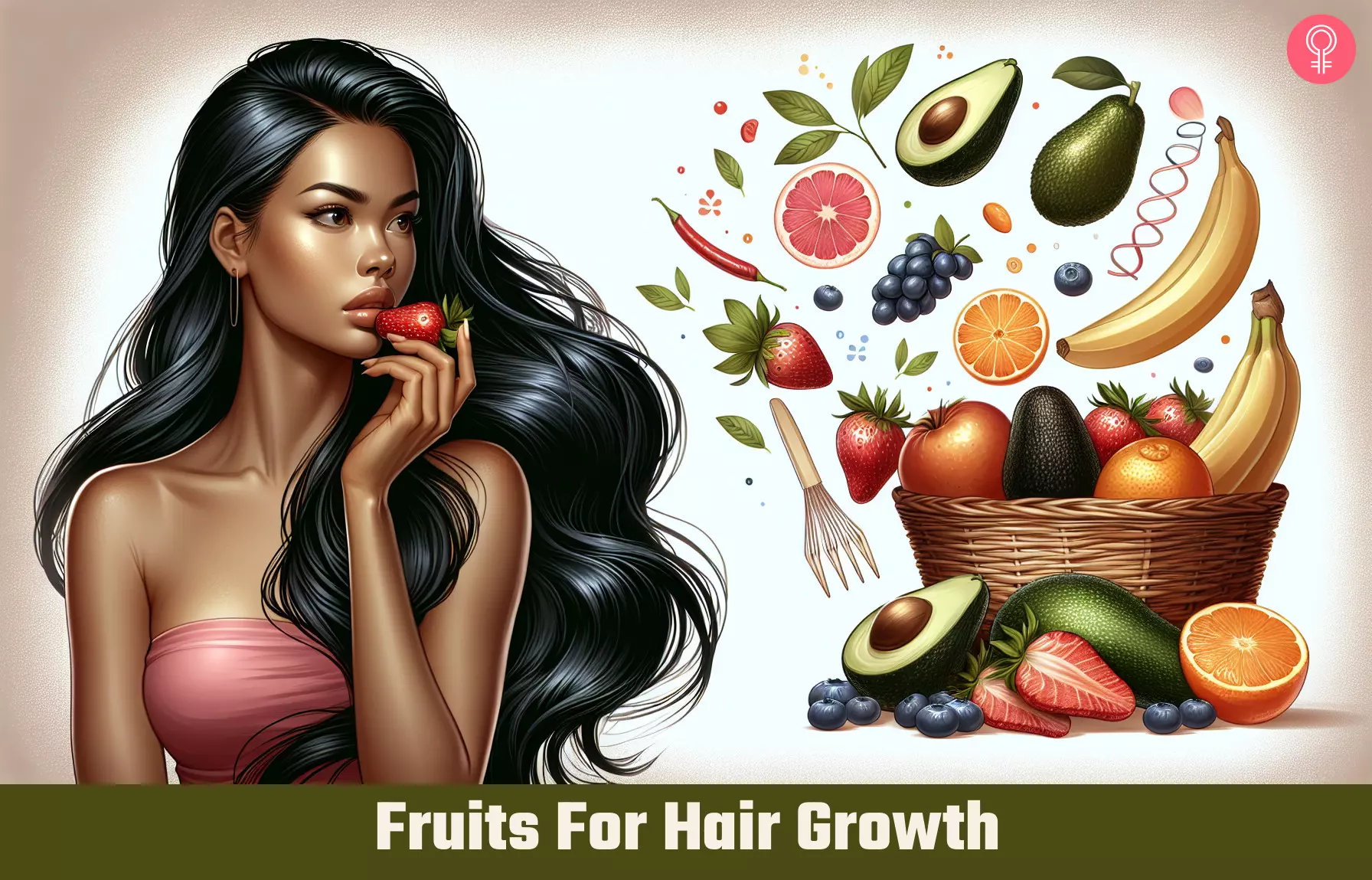
Image: Dall·E/StyleCraze Design Team
Discover the top 10 fruits for promoting hair growth! Watch this video to get invaluable tips that will elevate the appearance and vitality of your hair.
Personal Experience: Source
StyleCraze's articles are interwoven with authentic personal narratives that provide depth and resonance to our content. Below are the sources of the personal accounts referenced in this article.
i. I tried BANANA on my hair for 7 days & this happened! *before & after results*;https://www.youtube.com/watch?v=m51FloQenjU
References
Articles on StyleCraze are backed by verified information from peer-reviewed and academic research papers, reputed organizations, research institutions, and medical associations to ensure accuracy and relevance. Read our editorial policy to learn more.
- Milind, Parle, and Chaturvedi Dev. “Orange: range of benefits.” Int Res J Pharm7 (2012): 59-63.
https://www.semanticscholar.org/paper/ORANGE%3A-RANGE-OF-BENEFITS-Milind-Dev/bd3c9479b83b19867f1b8aab93033e08580b1786?p2df - Ruiz-Tagle, Susana A., et al. “Micronutrients in hair loss.” Our Dermatology Online/Nasza Dermatologia Online3 (2018).
https://www.researchgate.net/publication/326180006_Micronutrients_in_hair_loss - Kamimura, A., and T. Takahashi. “Procyanidin B‐2, extracted from apples, promotes hair growth: a laboratory study.” British Journal of Dermatology1 (2002): 41-51.
https://www.researchgate.net/publication/11520395_Procyanidin_B-2_extracted_from_apples_promote_hair_growth_A_laboratory_study - Tenore, Gian Carlo et al. “Annurca Apple Nutraceutical Formulation Enhances Keratin Expression in a Human Model of Skin and Promotes Hair Growth and Tropism in a Randomized Clinical Trial.” Journal of medicinal food 21,1 (2018): 90-103.
https://www.ncbi.nlm.nih.gov/pmc/articles/PMC5775114/ - Mani, Shankar. (2016). “TYPES AND IMPORTANCE OF BERRIES – A REVIEW.” AMERICAN JOURNAL OF BIOLOGICAL AND PHARMACEUTICAL RESEARCH. 1. 46.
https://www.researchgate.net/publication/318877108_TYPES_AND_IMPORTANCE_OF_BERRIES_-_A_REVIEW - Savali, Anil Sidram, Somnath Devidas Bhinge, and Hariprasanna R. Chitapurkar. “Evaluation of hair growth promoting activity of Musa paradisiaca unripe fruit extract.” Journal of Natural Pharmaceuticals3 (2011).
https://www.researchgate.net/publication/272895983_Evaluation_of_hair_growth_promoting_activity_of_Musa_paradisiaca_unripe_fruit_extract - Kumar, KP Sampath, et al. “Traditional and medicinal uses of banana.” Journal of Pharmacognosy and Phytochemistry3 (2012): 51-63.
https://www.phytojournal.com/vol1Issue3/Issue_sept_2012/9.1.pdf - Dreher, Mark L., and Adrienne J. Davenport. “Hass avocado composition and potential health effects.” Critical reviews in food science and nutrition7 (2013): 738-750.
https://www.tandfonline.com/doi/full/10.1080/10408398.2011.556759 - Sahu, Pooja, et al. “Nutraceuticals Profiling of Queen and King Varieties of Pineapple (Ananas Comosus) (Pineapple).” International Journal of Chemical Studies 2017; 5(3): 25-31.
https://www.chemijournal.com/archives/2017/vol5issue3/PartA/5-2-90-260.pdf - Goluch-Koniuszy, Zuzanna Sabina. “Nutrition of women with hair loss problem during the period of menopause.” Przeglad menopauzalny = Menopause review 15,1 (2016): 56-61
https://www.ncbi.nlm.nih.gov/pmc/articles/PMC4828511/ - Hosking, Anna-Marie, Margit Juhasz, and Natasha Atanaskova Mesinkovska. “Complementary and Alternative Treatments for Alopecia: A Comprehensive Review.” Skin appendage disorders2 (2019): 72-89.
https://karger.com/sad/article/5/2/72/291462/Complementary-and-Alternative-Treatments-for - Takahashi, T et al. “Procyanidin oligomers selectively and intensively promote proliferation of mouse hair epithelial cells in vitro and activate hair follicle growth in vivo.” The Journal of investigative dermatology 112,3 (1999): 310-6.
https://pubmed.ncbi.nlm.nih.gov/10084307/ - Gupta, A. & Sharma, P.C. & Thilakaratne, B.M.K.s & Verma, A.K.. (2012). “Studies on physico-chemical characteristics and fatty acid composition of wild apricot (Prunus armeniaca Linn.) kernel oil.” Indian Journal of Natural Products and Resources. 3. 366-370.
https://www.researchgate.net/publication/289239944_Studies_on_physico-chemical_characteristics_and_fatty_acid_composition_of_wild_apricot_Prunus_armeniaca_Linn_kernel_oil - Sharma, Rakesh et al. “Value addition of wild apricot fruits grown in North-West Himalayan regions-a review.” Journal of food science and technology 51,11 (2014): 2917-24.
https://www.ncbi.nlm.nih.gov/pmc/articles/PMC4571203/ - Bo, Huang & Goo, Kang & Wang, Zhiqiang & Soon, Sung. (2015). Effect of ethanol extract of plant mixture on hair regeneration in human dermal papilla cells and C57BL/6J mice. Journal of Medicinal Plants Research. 9. 1103-1110.
https://www.researchgate.net/publication/292190527_Effect_of_ethanol_extract_of_plant_mixture_on_hair_regeneration_in_human_dermal_papilla_cells_and_C57BL6J_mice - Kant, Ravi & Shukla, Rishi & Shukla, Abha. (2018). “A Review on Peach (Prunus persica): An Asset of Medicinal Phytochemicals.” International Journal for Research in Applied Science and Engineering Technology.
https://www.researchgate.net/publication/323258290_A_Review_on_Peach_Prunus_persica_An_Asset_of_Medicinal_Phytochemicals - Igwe, Ezinne & Charlton, Karen. (2016). “A Systematic Review on the Health Effects of Plums ( Prunus domestica and Prunus salicina ).” Phytotherapy Research.
https://www.researchgate.net/publication/298899398_A_Systematic_Review_on_the_Health_Effects_of_Plums_Prunus_domestica_and_Prunus_salicina - Patidar, Dr. (2018). “Preparation and evaluation of herbal hair growth promoting shampoo formulation containing Piper betle and Psidium guajava leaves extract.” INTERNATIONAL JOURNAL OF GREEN PHARMACY. 12. 10.22377/ijgp.v12i04.2263.
https://www.researchgate.net/publication/331322837_Preparation_and_evaluation_of_herbal_hair_growth_promoting_shampoo_formulation_containing_Piper_betle_and_Psidium_guajava_leaves_extract - Beatriz, Padrón-Márquez & Viveros- Valdez, Ezequiel & Oranday, Azucena & Carranza-Rosales, Pilar. (2012). “Antifungal activity of Psidium guajava organic extracts against dermatophytic fungi.” Journal of medicinal plant research.
https://www.researchgate.net/publication/259334847_Antifungal_activity_of_Psidium_guajava_organic_extracts_against_dermatophytic_fungi - “Emblica (Phyllanthus Emblica Linn.) Fruit Extract Promotes Proliferation in Dermal Papilla Cells of Human Hair Follicle.” Science Alert.
https://scialert.net/fulltext/?doi=rjmp.2011.95.100 - P., Sampath Kumar, et al. “Recent Trends in Potential Traditional Indian Herbs Emblica Officinalis and Its Medicinal Importance.” Journal of Pharmacognosy and Phytochemistry, 2278- 4136.
https://www.phytojournal.com/archives/2012/vol1issue1/PartA/2.pdf - Zaid, Abdel Naser et al. “Ethnopharmacological survey of home remedies used for treatment of hair and scalp and their methods of preparation in the West Bank-Palestine.” BMC complementary and alternative medicine 17,1 355.
https://www.ncbi.nlm.nih.gov/pmc/articles/PMC5499037/ - Wang, Meng et al. “Characterization of Phenolic Compounds from Early and Late Ripening Sweet Cherries and Their Antioxidant and Antifungal Activities.” Journal of agricultural and food chemistry 65,26 (2017): 5413-5420.
https://pubmed.ncbi.nlm.nih.gov/28613901/ - Rele, Aarti S, and R B Mohile. “Effect of mineral oil, sunflower oil, and coconut oil on prevention of hair damage.” Journal of cosmetic science 54,2 (2003): 175-92.
https://pubmed.ncbi.nlm.nih.gov/12715094/ - Bhowmik, Debjit. (2013). “Traditional and Medicinal Uses of Carica papaya.” Journal of Medicinal Plants Studies.
https://www.researchgate.net/publication/326089823_Journal_of_Medicinal_Plants_Studies_Traditional_and_Medicinal_Uses_of_Carica_papaya - Ashour, Ahmed et al. “A new aliphatic ester of hydroxysalicylic acid from fermented Carica papaya L. preparation with a potential hair growth stimulating activity.” Natural product research, 1-6.
https://pubmed.ncbi.nlm.nih.gov/30513209/ - Saeed, Farhan. “Nutritional and Phyto-Therapeutic Potential of Papaya (Carica Papaya Linn.): An Overview.” International Journal of Food Properties.
https://www.tandfonline.com/doi/full/10.1080/10942912.2012.709210 - Abdel-Ghaffar, Fathy et al. “Efficacy of a grapefruit extract on head lice: a clinical trial.” Parasitology research 106,2 (2010): 445-9.
https://pubmed.ncbi.nlm.nih.gov/19943066/ - “Sundawan, P. D., Satrio Adi Putra, Mochamad Raka Werdaya, & Nia Yuniarsih. (2022). The Potential of Red Dragon Fruit (Hylocereus polyrizhus) as a Hair Dye. Archives of The Medicine and Case Reports, 3(4), 304-306.
https://www.hmpublisher.com/index.php/AMCR/article/view/218 - Cheah, Liang Keat & Eid, Ahmad & Aziz, Azila & Ariffin, Farah & A, Elmahjoubi & Elmarzugi, Nagib. (2016). “Phytochemical Properties and Health Benefits of Hylocereusundatus.” Nanomedicine & Nanotechnology Open Access.
https://www.researchgate.net/publication/306291088_Phytochemical_Properties_and_Health_Benefits_of_Hylocereusundatus - Suo, Liye et al. “Dietary vitamin A regulates wingless-related MMTV integration site signaling to alter the hair cycle.” Experimental biology and medicine (Maywood, N.J.) 240,5 (2015): 618-23.
https://pubmed.ncbi.nlm.nih.gov/25361771/ - Everts, Helen B. “Endogenous retinoids in the hair follicle and sebaceous gland.” Biochimica et biophysica acta 1821,1 (2012): 222-9.
https://pubmed.ncbi.nlm.nih.gov/21914489/ - Anthocyanins and proanthocyanidins from blueberry-blackberry fermented beverages inhibit markers of inflammation in macrophages and carbohydrate-utilizing enzymes in vitro
https://pubmed.ncbi.nlm.nih.gov/23526625/ - Integrative and Mechanistic Approach to the Hair Growth Cycle and Hair Loss
https://www.mdpi.com/2077-0383/12/3/893 - Biological and Phytopharmacological Descriptions of Litchi Chinensis
https://www.ncbi.nlm.nih.gov/pmc/articles/PMC4791990/ - The Role of Vitamins and Minerals in Hair Loss: A Review
https://www.ncbi.nlm.nih.gov/pmc/articles/PMC6380979/ - Effect of kiwifruit protease on the characteristics of human hair
https://www.researchgate.net/publication/257776116_Effect_of_kiwifruit_protease_on_the_characteristics_of_human_hair - Screening of hair growth promoting activity of Punica granatum L. (pomegranate) leaves extracts and its potential to exhibit antidandruff and anti-lice effect
https://www.ncbi.nlm.nih.gov/pmc/articles/PMC8100084/
Read full bio of Elissa Peterson
Read full bio of Anjali Sayee
Read full bio of Ramona Sinha
Read full bio of Monomita Chakraborty





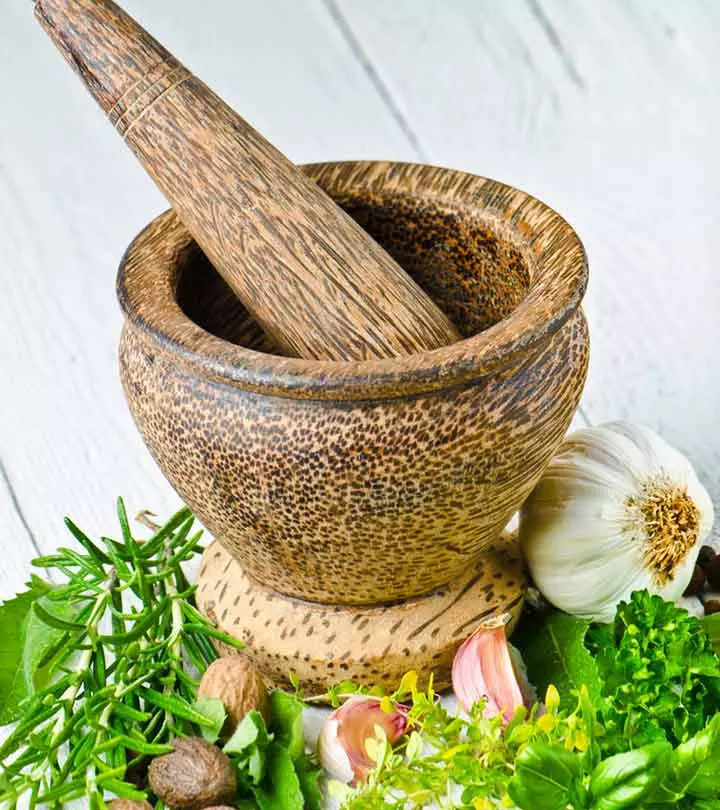
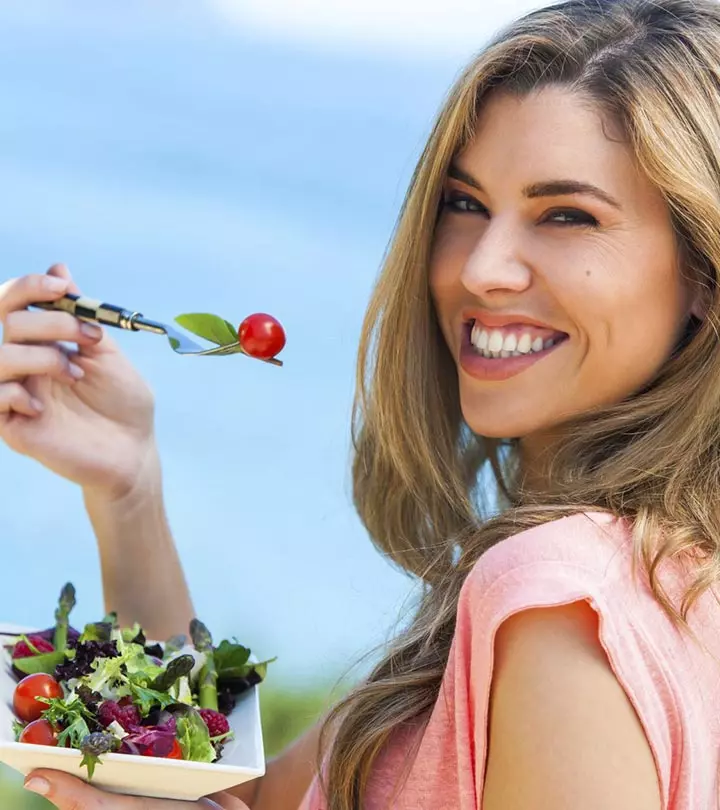
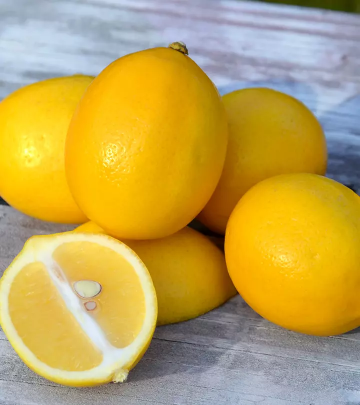
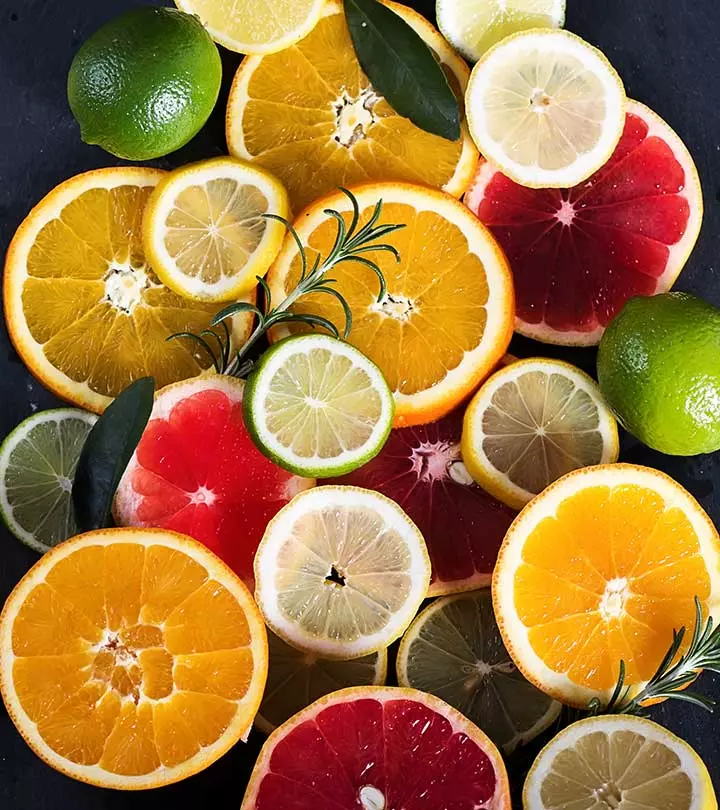
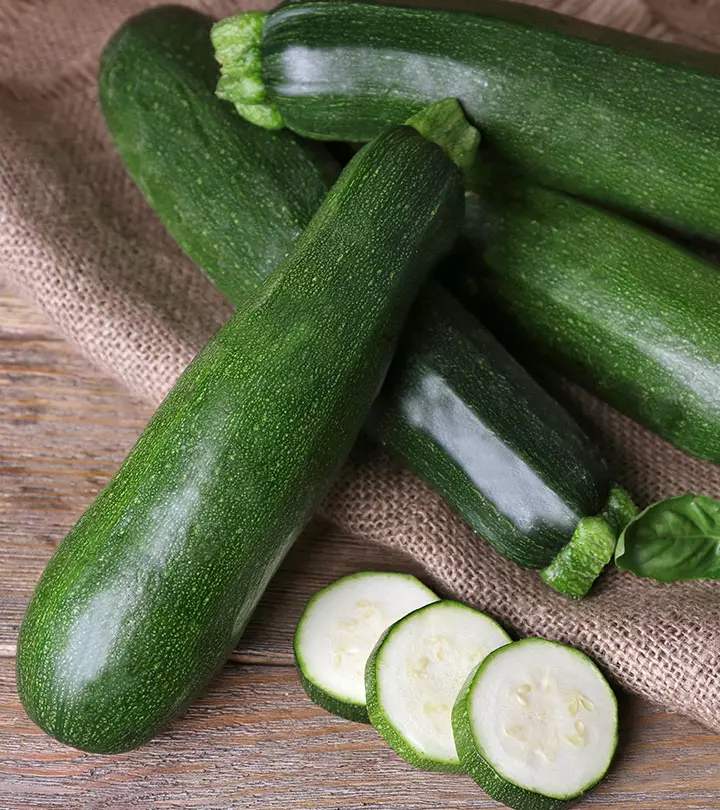
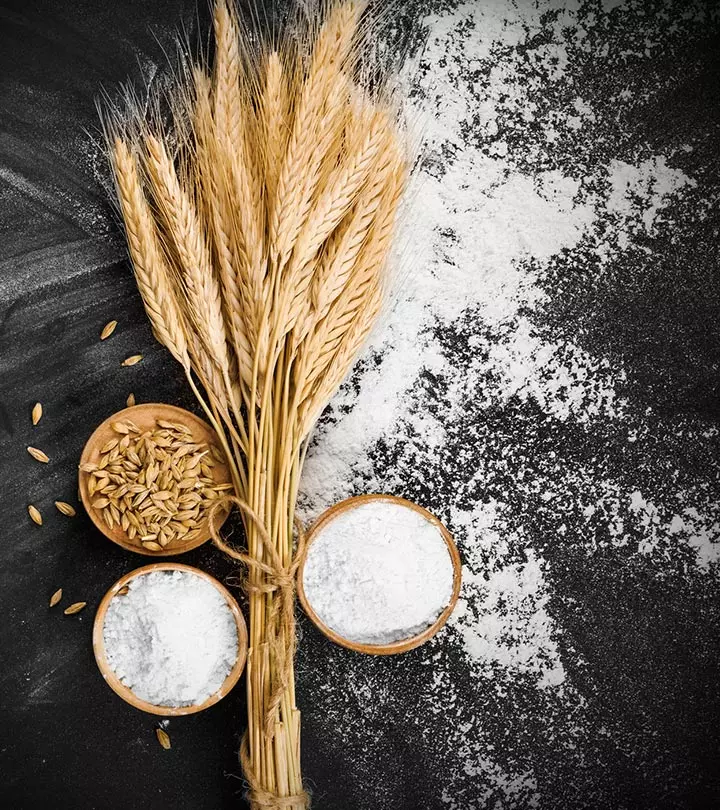
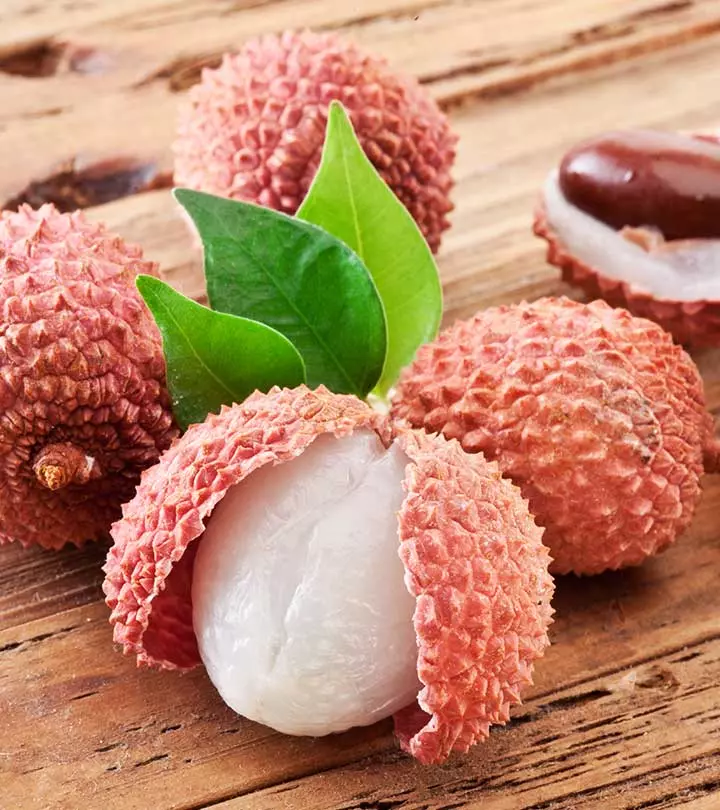
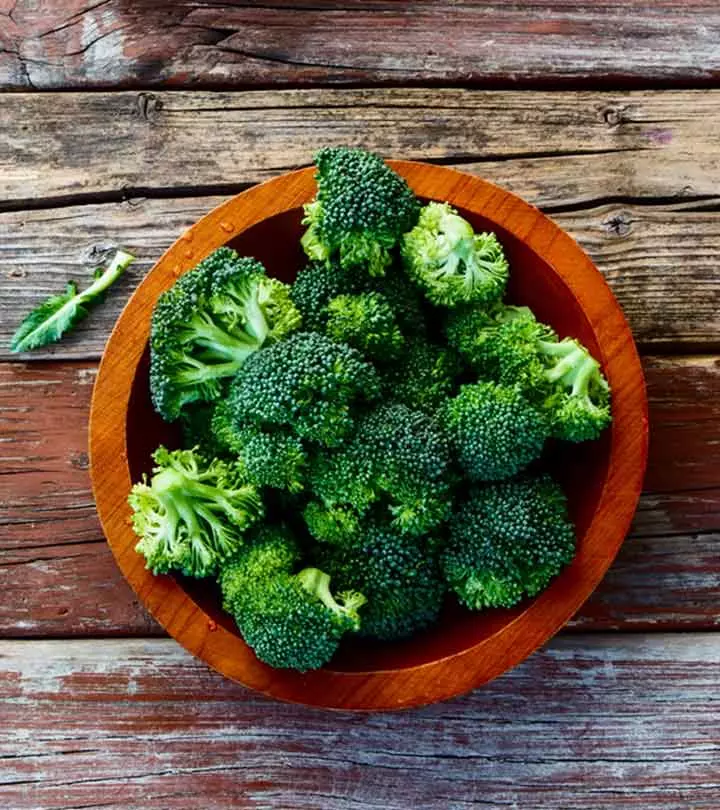
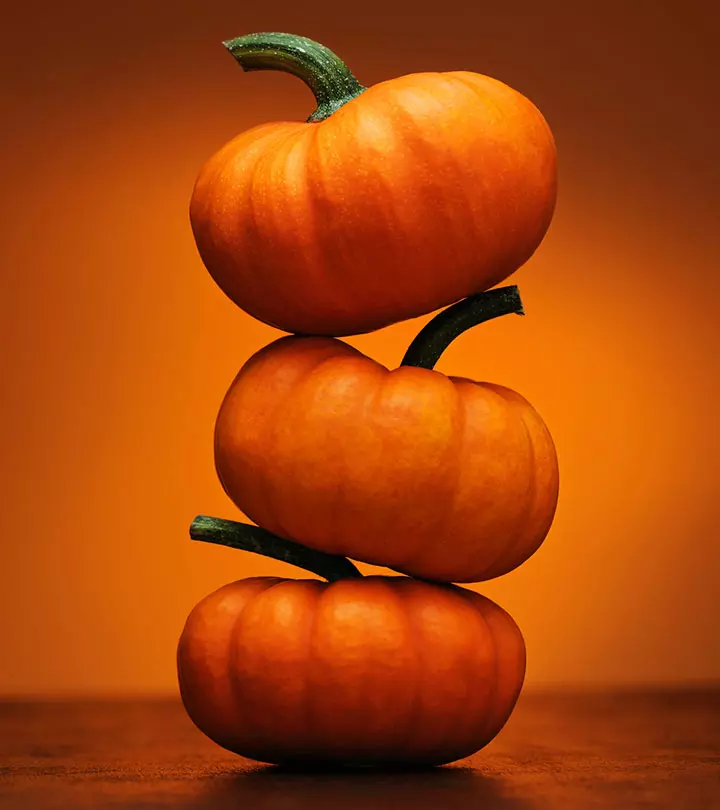

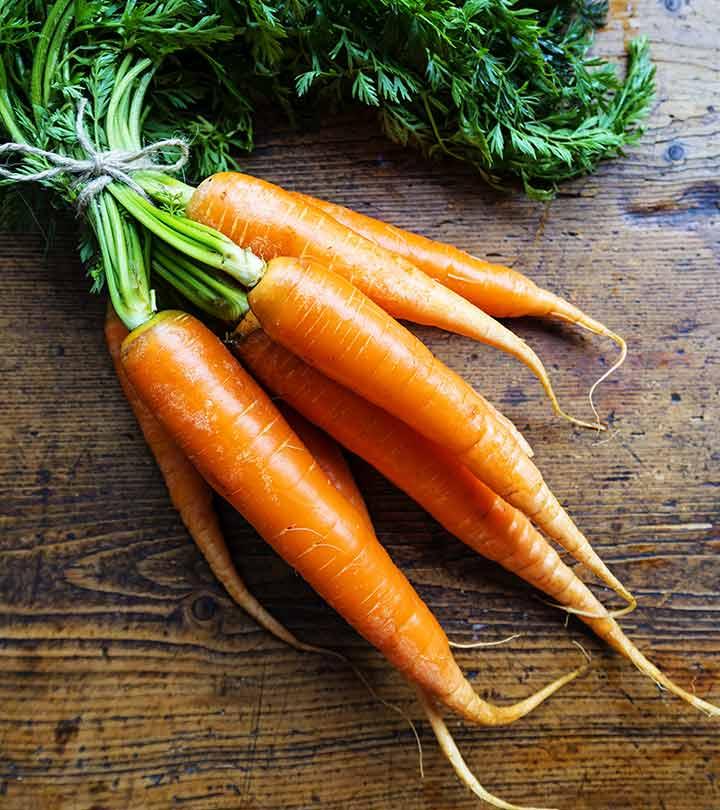
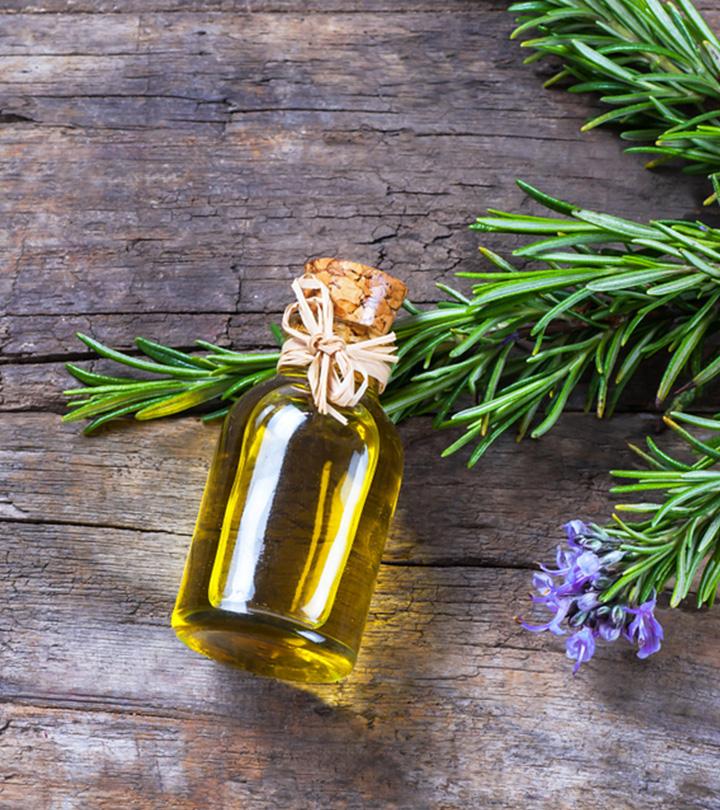
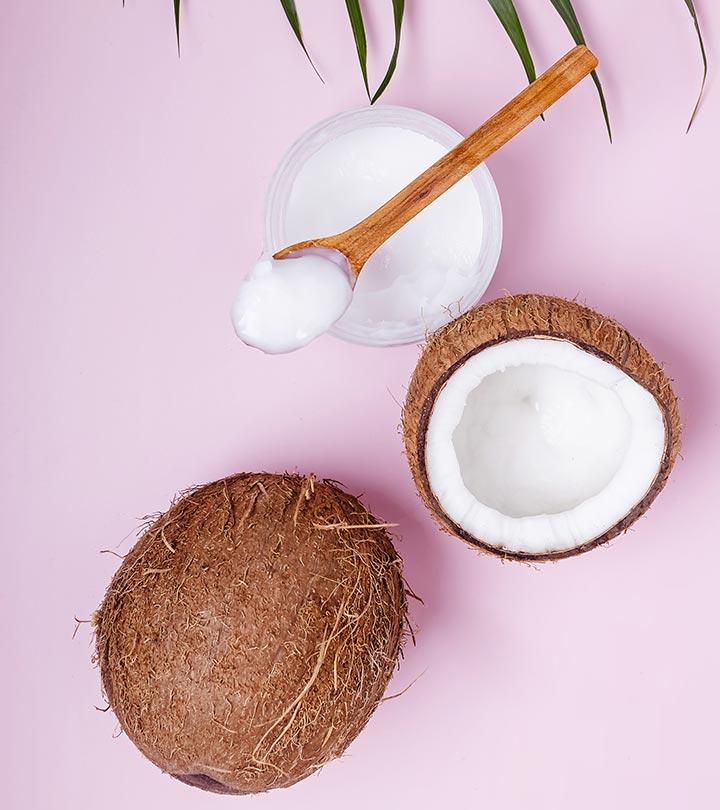
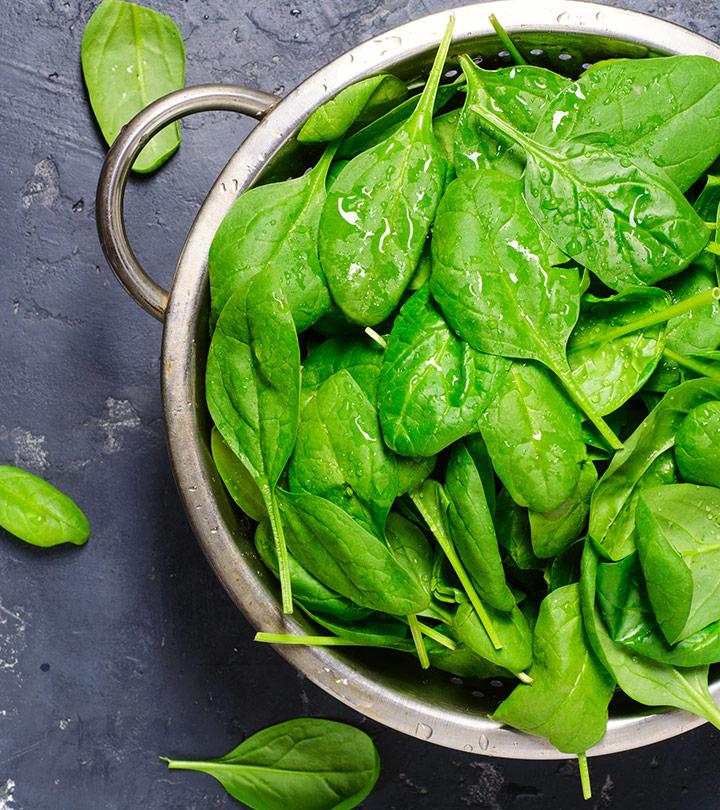

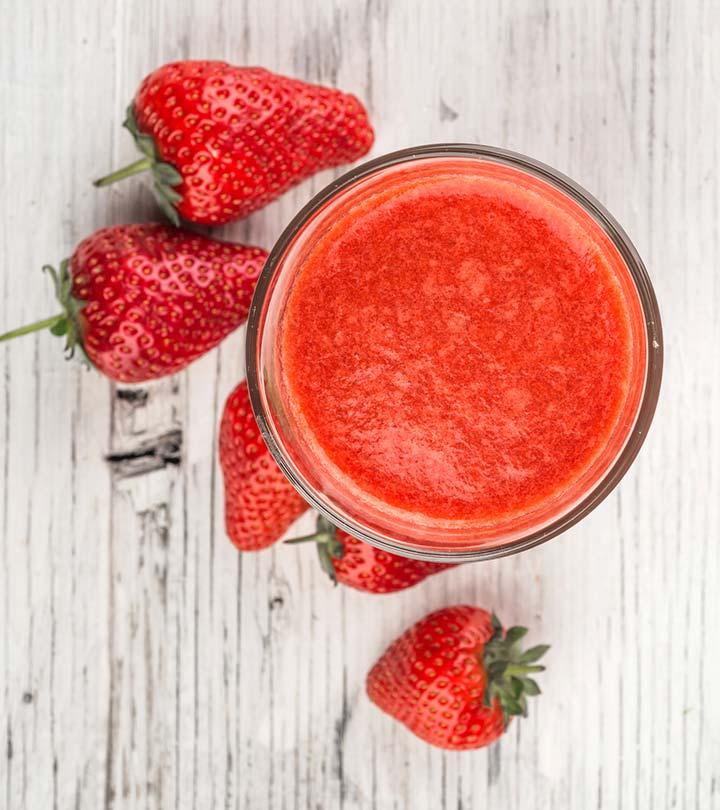
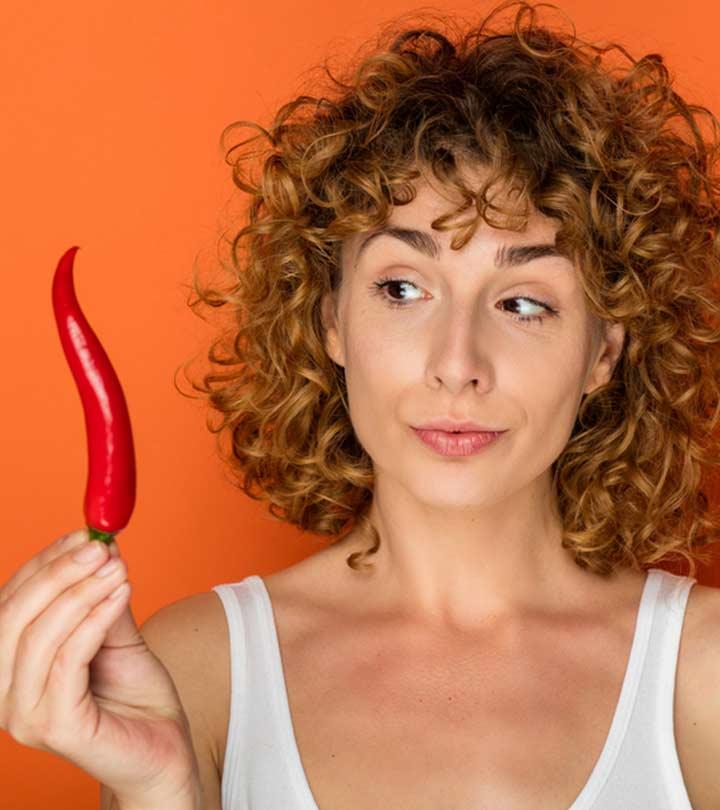
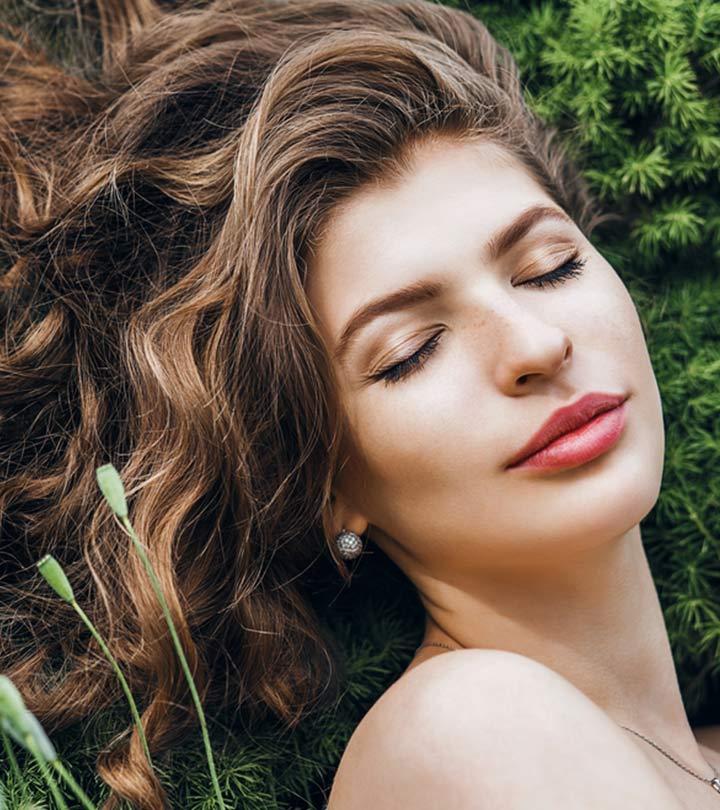
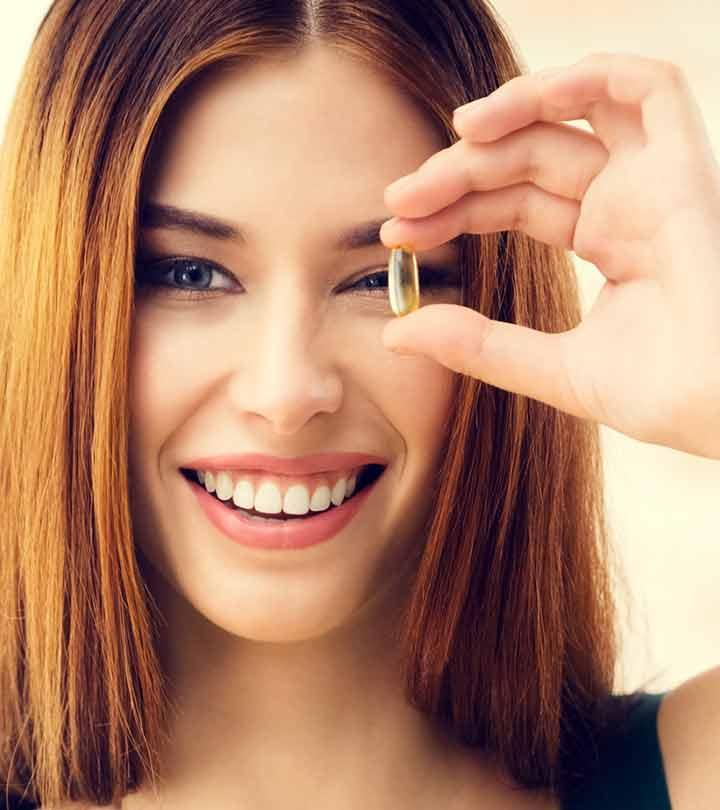
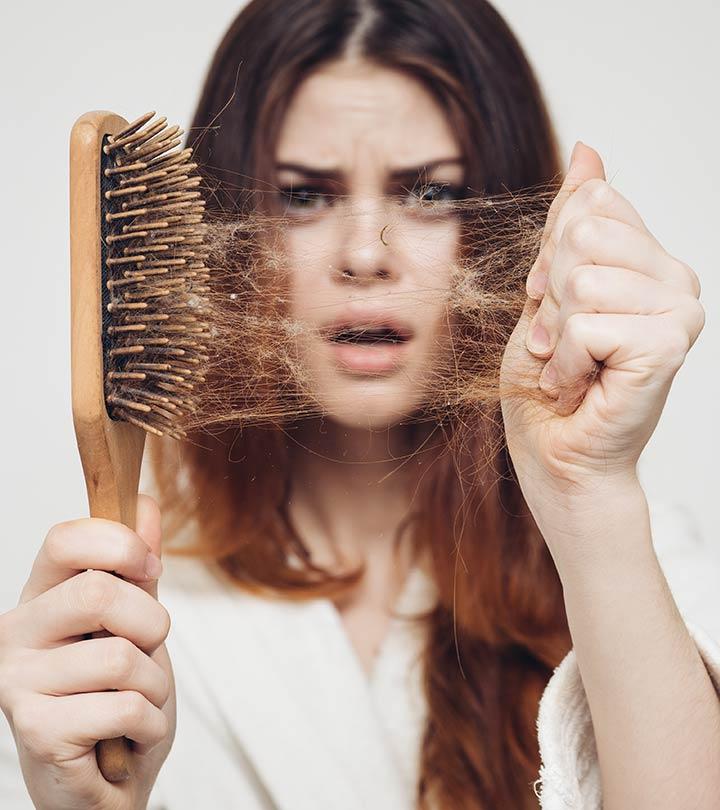
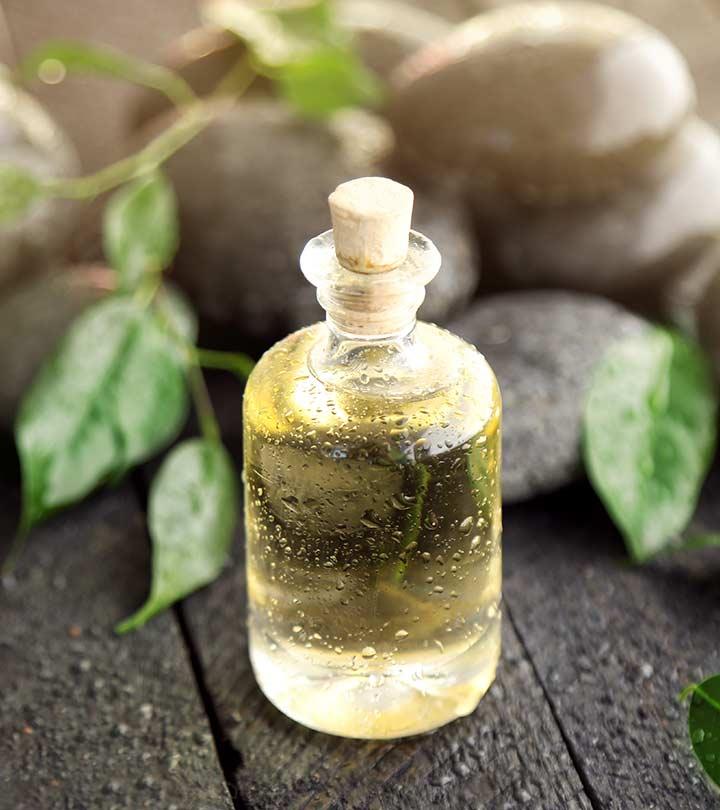
Community Experiences
Join the conversation and become a part of our empowering community! Share your stories, experiences, and insights to connect with other beauty, lifestyle, and health enthusiasts.